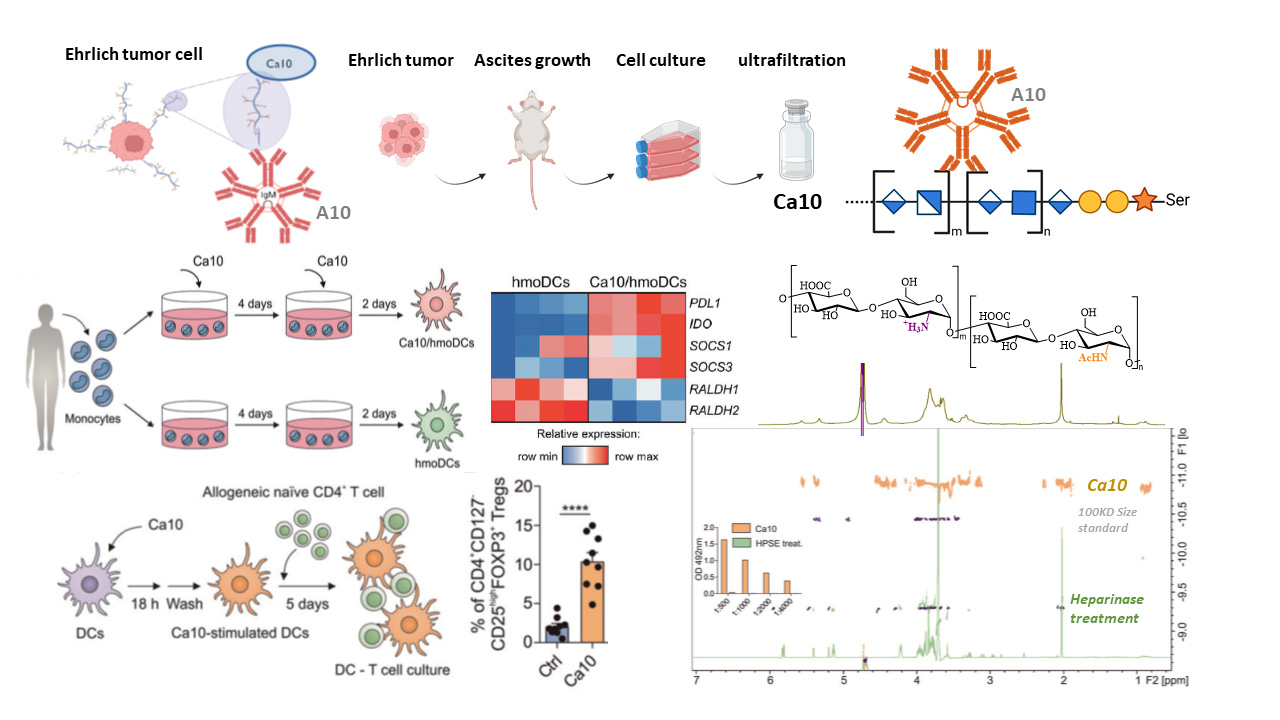
Researchers from five Spanish institutions have discovered new molecular mechanisms that promote the generation of regulatory T cells (Tregs) that play a key role in tumor development and progression. The work has been published in Nature Cellular & Molecular Immunology and counted with the participation of the NMR and molecular recognition group led by Dr. Francisco Javier Cañada at the Margarita Salas Center for Biological Research (CIB-CSIC).
Tregs are a specialized subpopulation of T cells that suppress abnormal or excessive immune responses to maintain immune homeostasis. While they play a key role in the prevention of autoimmunity, Tregs are also involved in tumor development and progression by inhibiting antitumor immunity. The mechanisms by which these cells are generated are not yet fully understood. It is known that dendritic cells - which are crucial in orchestrating immune responses - infiltrate tumors where they promote the activation of Tregs; however, the molecular basis of these mechanisms is still unknown.
Malignant transformation of cells is accompanied by changes in their surface components that play a role in driving tumor progression. It has been described that carbohydrates derived from tumor cells can inhibit anticancer immunity through different mechanisms. However, whether these carbohydrates trigger the generation of functional Tregs, and the underlying molecular mechanisms, are not yet understood. Now, Martín-Cruz et al. have shown that a surface carbohydrate derived from a specific type of tumor cell triggers the generation of Tregs through dendritic cells.
The A10 carbohydrate (Ca10) is a surface macromolecule of murine Ehrlich tumor (ET) cells that is spontaneously released from them and can be detected in the serum of solid ET-bearing mice. Previous research has shown that Ca10 is a highly glycosylated macromolecule. Now, nuclear magnetic resonance studies performed by Dr. Cañada's group at CIB Margarita Salas have shown that the structure of Ca10 is mainly a glycosaminoglycan related to heparan sulfate. In addition, pharmacological inhibition experiments and functional assays performed in this research show that the Ca10 glycosaminoglycan is essential for the induction of dendritic cells with the capacity to generate functional Tregs.
The researchers have also found positive correlations between serum Ca10 levels, tumor size, and the number of Tregs in the spleen in solid ET-bearing mice, and describe that Ca10 administration to tumor-free mice significantly increases the proportion of these cells in the spleen. In addition, the work provides evidence of a human Ca10 homolog (Ca10H) and shows, for the first time, that Ca10H levels are increased in the serum of patients with different types of cancer compared to healthy controls and, on the other hand, that in prostate cancer patients Ca10H levels correlate with bone metastases.
This work reveals new molecular mechanisms by which surface Ca10 and Ca10H components promote the generation of functional Tregs in tumors. This new structural-functional relationship is of therapeutic interest, and the work opens new avenues of research with important clinical implications in cancer treatment.
The work is the result of a collaboration between CIB Margarita Salas, Universidad Complutense de Madrid, Hospital Clínico San Carlos, CIBER de Enfermedades Respiratorias (CIBERES), and the company Inmunotek, and has resulted in two patents.
Reference: A tumor-associated heparan sulfate-related glycosaminoglycan promotes the generation of functional regulatory T cells. L. Martín-Cruz, M. Viñuela, I. Kalograiaki, A. Angelina, P. Oquist-Phillips, I. Real-Arévalo, F. J. Cañada, J. I. Tudela, L. Moltó, J. Moreno-Sierra, J. Lu. Subiza & O. Palomares. https://www.nature.com/articles/s41423-023-01096-9#

